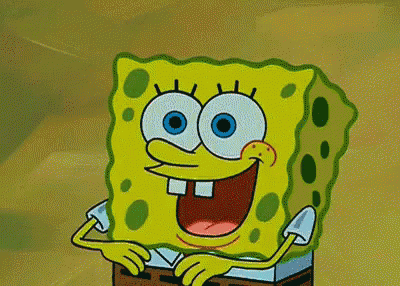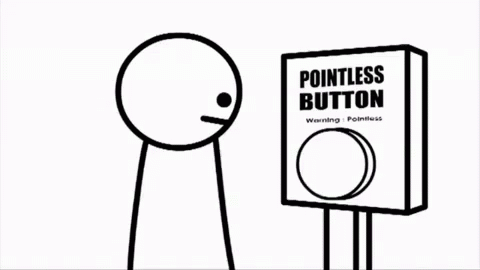The One Morning Habit That Is Killing Your Creativity

You want to be creative. You want to inspire and leave your mark on the world. We all do. We want to be seen, noticed and appreciated. We want our words, our art, our projects to inspire others.
Yet many times we feel largely uninspired. Some days we would rather turn over and go back to sleep or binge watch videos.
The truth is we love to create. We enjoy writing, drawing, teaching, making videos or painting. Then why are there so manys days we don't feel creative?
It might not be entirely your fault.

Did you know there is an extremely common morning habit that absolutely crushes the creative process?
And learning to eliminate this SINGULAR creativity killer from your morning routine and you can expect to see a compounding of your creative activity.
No more scatter brain mornings trying to find your keys as you gulp down some coffee going out the door. Instead, imagine days with laser focus and relaxed attention with inspired creativity and massive productiveness.
So, what is this soul crushing, productivity stealing morning routine?
Creativity Killer #1: Starting your day by checking your phone!
"What!?! Jason, you expect me to believe by picking up my phone from the nightstand and casually reading notifications kills my creativity for the entire day?"
Yes, that is the first key part. Just don't do it!! Do not check your email, scroll on social media or even watch a short video first thing in the morning.
Resist the urge to just "check it real quick". A quick glance at your phone can easily turn into an hour time suck of checking Instagram, Twitter or Facebook updates. Can you say, "Where did my morning go?"

Why do we do this? We know endless scrolling, reading updates or watching Tik Tok is a pointless endeavor. But why do we keep doing it?
Neuroscience has found these "quick" glances at our phones gives our brain a small doses of a hormone called dopamine. Our brains crave it.
Dopamine gives the brain a tiny and short lived sense of pleasure, satisfaction and feeling of achievement. The problem is this type of dopamine boost is temporary, leading to a quick letdown.
But this starts a chain reaction in the brain, triggering the desire for more and more dopamine, turning the "quick glance" at your phone into a 2 hour time stealer.
And according to a 2023 study of cell phone usage statistics, the average person checks their phone 96 times a day, or once every 10 minutes. While also spending 5 hours and 24 minutes every day on their mobile device.
A Problem Worse Than Lost Time And Productivity
But worse than the loss of productivity, is what checking your phone frequently does to your brain activity.
Firstly, the same neuroscience study showed evidence that certain types of online content as well as the frequent checking of a mobile device trigger a stress response which releases a hormone called Coritsol.
This the fight or flight hormone!!! Too much Cortisol in your system over time leads to anxiety and eventual chronic disease.
Creativity and stress are on two ends of a large spectrum of brain activity. And I don't have to tell you, it is next to impossible to be creative when you are under a load of stress.
Which leads to the other reason you should not check your mobile device first thing in the morning.
Learn To Ride The Wave: The Theta Brain Wave
According to a Scientific American article, the electrical pulses in the human brain are displayed by brainwaves seen in 4 categories ranging from the most activity to the least activity.
The first and fastest stage of brainwaves are called Beta waves. These are seen when a mind is aroused and actively engaged. A person holding a conversation, teaching or making a speech would be in Beta state.
The second stage is called Alpha and is a bit slower and is categorized by non-arousal. Someone resting in a chair after finishing a task or taking a walk after engaging in a class would be in Alpha state.
The third and even slower stage is called Theta and categorized by daydreaming. It often occurs during freeway driving, where a driver cannot remember driving the last 10 miles. This repetitious activity allows for the flow of ideas.
It can also happen during mundane tasks such as brushing your teeth or showering. The automation of the task allows the mind to disengage from the task and thoughts flow freely without censorsing. This stage is a very positive mental state.

The final and slowest stage is known as Delta and is categorized by deep sleep.
So these four stages catgorized by intensely active, relaxed, creative and restful each have a place in the various parts of our day. But it is clear the longer we can remain in the relaxed Alpha and creative Theta stages the better for our creative process.
The first part of our day we want our thoughts to be clear and relaxed. And the single best way to allow for this is not engage with your mobile device first thing after waking.
Congratulations! You are on your way to free flow of creativity by guarding your first 30-45 minutes of your morning from the stress inducing, dopamine fixing, creativity killing onslaught that comes through your mobile device.
Cheers to your new found creative flow! 👍🏽
Now your ready to learn the art of building a morning routine that leverages this relaxed creative state.
- Jason Dillingham, Curator of The Art of Intention, (c) 2023
Subscribe to The Art of Intention and join our community of creatives building the next best things.
Member discussion